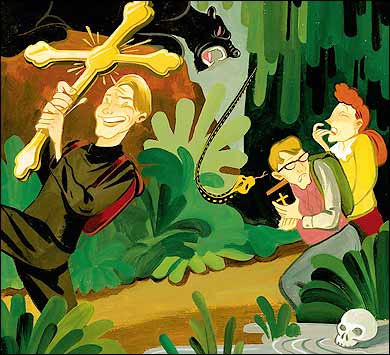EARLY THIS FALL, 35-year-old Philip Smethurst released coordinates for a remote Central American surfing spot, where he'll host perhaps the most intense spring bash of 2004—though in this case you'll spot more crucifixes than thongs. Smethurst, an extremely devout South African expat based in Cape Canaveral, wants to draw adventurous young Christians to a revival that boasts seminars and sessions on the waves—all aimed at inspiring them to spread the gospel to the most remote people in the world.
If this sounds like cultural cross-pollination gone too far—The Beach meets the Bible—get used to it: Smethurst is a doer, and he's determined to bring Outward Bound liveliness to old-school missionary tactics. He got started at 20, when his local charismatic Christian church told him he didn't have enough experience for conventional missions. Undeterred, he struck out on a six-year do-it-himself missionary expedition across six continents.
Smethurst returned convinced that thousands of souls could be saved if others went on similar journeys. In 1998, he moved to Florida and established Overland Missions, a nonprofit outfitter that's taken 500 twenty-somethings on backcountry missions that run $2,000 to $3,500 and last two to five weeks. Trips start with two days of orientation—with basics on GPS use and bush truck maintenance—and require treks to places like the central Amazon Basin, where participants build friendships with willing converts. Once home, they send letters of advice and, occasionally, financial support. “This is a trend God's been developing in the church,” says Smethurst. “He wants us to mobilize an army of young people to travel independently and spread his word.”
Others wish he would stay put in the pews. Though Smethurst says he's working to empower natives, skeptics fear he's merely painting a hardcore happy face on a practice responsible for centuries of cultural devastation. “Religious groups in the jungle break native populations into pieces,” says Rudolph Rÿ;ser, chairman of the Olympia, WashingtonÐbased Center for World Indigenous Studies. “It's the first step to making them extinct.”


